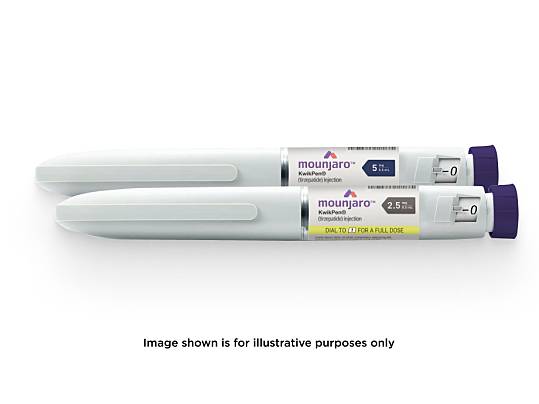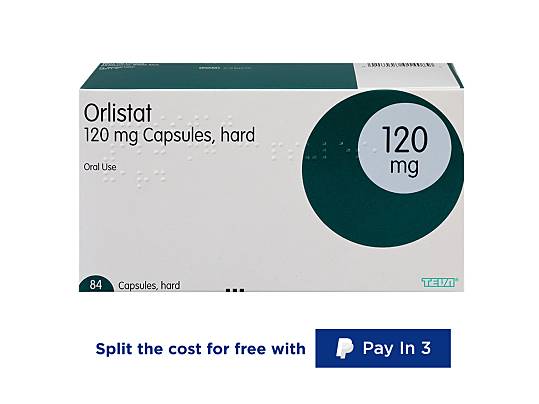Why am I not losing weight on Mounjaro?

Medically reviewed by
Dr Zoe MillerLast reviewed: 16 Oct 2024
You can stop losing weight on Mounjaro for many reasons, but diet, dosage and lifestyle issues are the most common. It also takes time for Mounjaro to work and for you to reach the highest maintenance dose.
Most people can expect to lose around 20% of their body weight while taking Mounjaro after 72 weeks if taking the 15mg maintenance dose, but if you’ve stopped losing weight while on Mounjaro or you’re not losing any weight at all, we can help you find out why and work out what to do next.
1. You need to make changes to your diet
Diet plays a very important role in losing weight with Mounjaro. Not sticking to a healthy diet plan or overeating can reduce your weight loss or stop you from losing weight. To lose weight, you should maintain a ‘calorie deficit’. This means eating fewer calories than you burn. Eating more calories than you burn will lead to weight gain, regardless of whether you’re taking Mounjaro. Remember, Mounjaro helps reduce your appetite so you can eat less without being hungry, it doesn’t make you lose weight on its own.
IMPORTANT:
For people assigned male at birth, the recommended daily calorie intake is 2500 calories.
For people assigned female at birth, the recommended daily calorie intake is around 2000 calories.
You should eat at a 600-calorie deficit to achieve safe and effective weight loss at a steady and safe pace.
How does a calorie deficit help me lose weight?
Calories are the energy your body gets from foods and drinks. Your body uses this energy to carry out daily tasks, exercise, and anything else it needs. If you eat more calories than you use, your body stores the excess as fat, leading to weight gain.
When you eat at a calorie deficit, your body uses its fat reserves for the extra energy it needs, so you lose weight because you're burning fat. By sticking to a calorie deficit, regularly taking your medication and exercising, you should see weight loss results.
While a calorie deficit can help you lose weight, it's important to remember that eating too few calories can also have a negative effect. This can plateau weight loss and make side effects worse. You need to ensure you're getting the right amount of calories and nutrients for safe and effective weight loss.

"We provide a free, weight loss support pack that contains nutritional advice when you start your weight loss journey with Asda Online Doctor. This was created with our in-house nutritionist and doctors and contains information about how to make healthier diet choices so you can reduce your calorie intake while still getting all the nutrients you need." Dr Kathryn Basford
Counting calories and making healthier choices
When losing weight with Mounjaro, you don’t necessarily need to count every calorie you eat, but you can if you want to! Some people find counting calories helps them keep track of what they’re eating. There are apps (like the NHS food scanner app) you can use to track calories that also help you track nutrition, so you can make sure you’re cutting the calories but still getting all the nutrients you need.
The best way to get started is by making healthier choices. This means swapping high-fat and high-calorie foods for reduced-fat options. Here are some quick and easy changes you can make to reduce your calorie intake and work them into your lifestyle for long-term weight loss.
1. Choose reduced-fat options, avoid saturated fats
When shopping in the supermarket, choose lower fat options of your favourite food and drink. For example, opt for lean cuts of meat, like reduced-fat mince. You could also look out for reduced-fat spreads such as olive-based spreads. Use food labels as a guide as you shop your favourite products, avoiding foods with fats that are highly saturated.
2. Go for water and squash instead of fizzy drinks
Fizzy drinks are full of sugar and high in calories. For example, a regular can of cola can contain as much as 9 cubes of sugar, which is more than the recommended daily limit for adults. This is more than 5% of the recommended calorie intake of 30g of sugar (roughly 7 sugar cubes) in a day. So, by eliminating fizzy drinks you can cut down on calories. Find healthier alternatives like water, which you can add lime, or lemon too for a bit of extra flavour. Alternatively, try flavoured squash.
3. Reduce your portion sizes
You can have too much of a good thing. By eating smaller portions, your calories will go down, and you’ll still be able to enjoy your favourite foods.
4. Ditch the takeaways
Takeaways are packed with calories, and sometimes, you can’t tell how many your meal contains. Cooking from scratch helps you to know exactly what you’re consuming.
5. Stop cooking with oil
Oil contains a lot of calories! By swapping it out for a low-calorie spray or ditching it altogether, you can lose more weight and reduce your fat intake. This is where items like air fryers can come in handy, as you don’t need to use any oil to make crispy, tasty food items. You can cook almost anything in an air fryer too.
If you make healthier choices and eat smaller portions, you won’t need to count your calories as much because you should be losing weight at a safe and steady pace. But, if you find you aren’t losing weight or are putting on weight on Mounjaro, it’s best to use a calorie tracker until you get the hang of understanding calories and portion sizes. Make sure to include calories from drinks too – there are many hidden calories in fizzy drinks, sugary hot drinks and alcohol, which is why it’s best to stick to water.
What foods should I be eating?
While dieting and eating at a calorie deficit, it’s important to make sure that your body is getting all the nutrients it needs. If all of your calories come from saturated fats and processed foods, you could put yourself at risk of developing a condition like diabetes, high blood pressure or high cholesterol. But this doesn’t mean you should avoid fat altogether because fats also provide an important energy source for your body. This is why you need to make sure your diet is balanced and contains the right nutrients to help you lose weight and stay healthy.
We recommend eating more of these foods while on Mounjaro:
High-quality lean proteins: Fish, turkey, chicken, eggs, tofu, tempeh, yoghurt (low-fat Greek), cheese (low fat), and seafood.
Fat from whole foods: Nuts, seeds, avocado, and extra virgin olive oil.
High-fibre complex carbohydrates: Quinoa, brown rice, sweet potato, potatoes, legumes (lentils, chickpeas, and beans ).
Fruits and vegetables: Any you like. Though keep in mind that fruit juice and smoothies have a high sugar content, so it’s best to not consume excessive amounts.
We recommend avoiding these foods while on Mounjaro:
- Ultra-processed foods - boxed cereals, most bread and pastries, fast food, microwave meals, pizza, crisps, biscuits, ice cream, fizzy drinks, and premade sandwiches.
- Refined carbohydrates - white pasta, white rice.
- Refined oils - vegetable oil, sunflower oil.
- Sweets - chocolate, boiled sweets, confectionery products.
- Alcohol
Your Mounjaro plate
How you plate your food is a good way to build a balanced diet and get your portions right.

2. You need to be more active
Physical activity plays another essential part in weight loss. The more your body moves, the more energy it uses and fat it burns. If you’re not as active as you could be, this may be why you’re not losing weight or not losing weight at the rate you’d like. While you may still lose weight without exercising, exercise plays a vital role in helping you build a healthier lifestyle and maintain weight loss after treatment.
The right workout for you
We understand that the idea of exercise can be daunting during a weight loss journey, and we're not saying you need to get up and go for a run straight away. People are at different stages of their fitness journey, and what's achievable for you may not work for someone else. It's important to understand that just doing a little more activity than you're used to can benefit your health and help you lose more weight effectively.
If you've never exercised before:
Start small. Go for a light walk, do some housework or gardening, and then try to increase the amount you do each week. Even if it's just going on a slightly longer walk every day, the more you do, the easier it will be and the better it will feel. You just need to take small steps and stay consistent. It can also help if you feel like you want to snack to do something active instead, even if this is going up and down the stairs in your home a few times or doing some hoovering.
If you're already exercising:
It might be time to start working out more regularly or making your workouts more intense. We recommend a minimum of 30 minutes of cardio (running, cycling, rowing) at least 3 times a week and working your way up to either 150 minutes of moderate-intensity activity or 75 minutes of vigorous-intensity activity a week.
According to NHS guidelines for adults aged 19 to 64, you should aim to:
- do strengthening exercises as well as cardio, such as lifting weights at least 2 days a week
- spread your exercise over 4 or 5 days a week, or every day if you’re more used to exercising or you’re doing shorter bursts
- reduce the amount of time you spend sitting or lying down and break up long periods of sitting down, such as going for a short walk on your lunch break at work or doing some light stretches every few hours if you work on a computer
"Staying active during your weight loss journey always leads to better weight loss results. It also benefits your health in other ways, improving your heart health and cholesterol levels which is especially important for protecting your health now and in the future." Dr Zoe Miller
3. You need to give Mounjaro more time to work
Weight loss is never an overnight process. That’s why we call it a journey. And while Mounjaro can help you lose up to 22.5% of your body weight on the 15mg maintenance dose, this is over 72 weeks. So, while you may lose weight faster with Mounjaro, it is still a gradual process where weight loss doesn’t happen immediately. You must also stick to your treatment and work on your diet and exercise plan to make it happen.
Different bodies, different weight loss
Everyone reacts differently to medication, so some people find they lose weight faster, while others take a while to adjust. There are also other factors that can affect your weight loss journey, like your:
Age
How old you are may affect how you lose weight. It can often be harder to lose weight as you age, especially if your metabolism has slowed down a lot, or you find it more difficult to stay active, and it may take a little more time.
Metabolism
Everyone’s metabolism is different. Some people burn more calories at rest so lose weight more quickly, and others find it harder as their metabolism is slower. If you have a slower metabolism your weight loss might take a little longer.
Starting weight
If you have a higher starting weight, you might lose weight much faster when you first take Mounjaro. You might also find you lose weight more slowly once you’ve lost some weight. This is normal, and you just need to stick with it.
Lifestyle
People with more active lifestyles may lose weight faster than more sedentary people. If your lifestyle isn’t very active, it might take you a little longer.
Medications
Certain medications can cause weight gain or make it more difficult to lose weight. You shouldn’t stop taking medications you need for this reason, but if you are concerned about this you should discuss it with your doctor.
Health conditions
Some health conditions make it harder to lose weight and can cause weight gain (such as hyperthyroidism, or PCOS). If you have a condition like this, your doctor will work with you, and you’ll still see results, but it may take a bit longer.
How long will it take to lose weight with Mounjaro?
Everyone loses weight at different rates, but studies into Mounjaro show:
Month 1
Average weight loss: 1 to 3% body weight
Month 2
Average weight loss: 6% body weight
Month 3
Average weight loss: 8 to 9% body weight
Month 4
Average weight loss: 11% body weight
Month 5
Average weight loss: 12% body weight
Average weight loss after 17 months: 16 to 22.5% body weight
Another study found that after 72 weeks (16.5 months) on the highest maintenance dose of 15mg weekly tirzepatide, people lost up to 22.5% of their starting body weight.
Stick with it until your next check in
Your doctor will regularly check in to see how you're progressing on your weight loss journey. Part of this check-in process will be to see how much weight you've lost. If you're taking your treatment as prescribed and sticking to your diet and exercise plan but still not seeing results, they will work with you to make a plan of action and find a solution.
4. You haven’t reached the highest maintenance dose
Your maintenance dose is the dose of Mounjaro that is most effective for helping you lose weight, but you don’t start at this dose. You start at the lowest treatment dose (2.5mg) and slowly titrate until you reach your chosen maintenance dose, which is usually 5mg, 10mg or 15mg.
Mounjaro doses are increased like this to make sure your body safely gets used to the medication and to reduce side effects. You will still lose weight at lower doses and notice the effects of the medication, but you may notice things progress more smoothly once you reach your chosen maintenance dose.
On average, after 72 weeks of treatment people taking 5mg lost 16% of their weight, people taking 10mg lost 21.4% and those on 15mg lost 22.5%.

If you’re not losing weight at the rate you’d like at your starter or a lower dose, we recommend sticking with your treatment until you reach a higher maintenance dose. You may find that this dose works better for you and will notice more weight loss. You can also stay on any maintenance dose, such as 10mg, if you find that you start getting results and don’t want to increase your dose again. You can always change your mind and increase it later.
5. You’re in a weight loss plateau
A weight loss plateau occurs when you've been steadily losing weight and then suddenly stop without making any changes to your medication, diet, lifestyle, or exercise plan. This is completely normal and happens to many people during their weight loss journey.
One reason this can happen is that when you first start losing weight, you usually lose more weight faster as you're making significant changes to your diet and starting medication. As you lose weight quickly, your body can kick into 'survival mode'. This is when your body starts storing more calories as fat to make sure you have reserves. When this happens, your weight loss journey slows down, but this is only temporary.
Another cause of a weight loss plateau is water weight. Our bodies are made up of 60% water, and when we introduce exercise, start a diet and make lifestyle changes, we can lose 'water weight' rapidly, but this isn't fat loss. This water is also quickly replaced, so while you may suddenly see a large change on the scales, it could be water weight, and temporary. This can make it feel like you're losing less weight than you thought or that you're gaining weight, but it's just part of the process. You will still be losing fat, and while losing water weight is temporary, the fat you lose can lead to long-term weight loss if you stick to your routine.
Whatever is causing a weight loss plateau, it's important to remember that it's normal, and there are things you can do to keep your journey going.
What to do in a weight loss plateau:
- Keep going with your medication: Don’t stop taking your medication because you’ve hit a plateau. Keep taking your medication as prescribed and step up to your next dose if it’s time to. You should see your weight loss resume.
- Adjust your diet: It might be time to change your caloric intake or look at the different foods you're eating. You might find you’ve hit a plateau because you’re eating too much or not enough.
- Do more exercise: As your body gets used to exercising, you may need to push your limits more. Try increasing how often you exercise or the intensity of the exercise you’re doing.
If you can’t figure out why you’re experiencing a weight loss plateau, or it’s going on indefinitely, you should speak to one of our doctors. They can advise you and discuss your options if you need to make a change.
Weight loss plateaus are a normal part of the weight loss process and are usually temporary.
6. You’re stressed
Your emotions play a large role in weight loss, and stress can impact your journey more than you think. When you’re stressed, your body releases a hormone called cortisol to help protect itself. However, having high cortisol levels over a long period can lead to overeating and your body storing more energy as fat. This is where the term ‘stress eating’ comes from. You get more stressed, so you eat more food as a way to manage and gain more weight.
Studies have also shown that cortisol is linked to storing more fat in your belly. As your cortisol levels go up, so does your blood sugar. When you have higher blood sugar, your body produces more insulin, leading to weight gain. In addition, high cortisol levels can lead to muscle breakdown.
With this in mind, it’s important to check in with yourself to see if your stress levels are stopping you from losing weight as quickly as you’d like.
If you are feeling stressed, you can look into strategies to reduce your stress levels and try to make sure it doesn’t affect your diet plan.
- Talk to your doctor: If you’re finding your stress levels unmanageable, talk to your doctor. They can help provide mental health support such as access to Talking Therapies, or counselling which can teach you strategies to cope better.
- Try relaxation techniques: Introduce some breathing exercises, yoga and mindfulness to your daily routine.
- Do some activity: Often, going for a short walk or a run can reduce your stress levels.
- Avoid stress eating: If you’ve already eaten and know you don’t need to eat, try to not eat. It’s much harder to stop stress eating once you’ve started. Pour yourself a large glass of water, and do a breathing exercise before getting something to eat. If you’re struggling with stress eating, speak to your doctor as soon as possible to get the right support.
- Identify your triggers: Try to find the source of your stress. You can talk to a health professional about this and take steps to reduce your stress better when you know exactly what’s causing it.
You might find that by reducing your stress, you lose more weight.
7. You might have a health condition
There are health conditions that can make it harder to lose weight, but you shouldn’t jump to any conclusions before speaking to your doctor.
Health conditions that can affect weight loss include but are not limited to:
- Vitamin deficiencies
- Hormone imbalances
- Depression & chronic stress
- Thyroid disorders
- Diabetes
How each condition affects weight loss can differ, and you may need more support on your journey or more time to lose weight, but it won’t make it impossible.
If you develop any new symptoms and stop losing weight for a consistent period while taking Mounjaro, you should speak to your GP. They may want to conduct a few tests to ensure another condition isn’t impacting your health or weight loss journey.
8. Mounjaro is not right for you
In rare cases, you may not be losing weight with Mounjaro because it’s not the right treatment for you. Everyone reacts to different medications differently, and some medications are more effective for certain people than others. It's also vital to remember that no medication is 100% effective for everyone.
Fortunately, many alternative weight loss medications are available if Mounjaro isn’t the one for you and our doctors can support you in making a change to something more suitable if required.
Before making a change, closely monitor your progress with Mounjaro and keep a record of your exercise and diet habits. This way, you can be certain that it’s the medication that’s not working for you rather than a problem with your lifestyle or diet.
Alternatives to Mounjaro
If Mounjaro isn’t right for you, we can prescribe other weight loss medications, including other injections and tablets.
Weight loss injections
Wegovy works in a similar way to Mounjaro but contains a different active ingredient. It makes you feel more full from eating less food, leading to weight loss. It’s an effective medication, with up to 84% of patients losing 5% or more of their starting weight.
Weight loss tablets
You take orlistat (generic Xenical) after each meal, which reduces the amount of fat you absorb from that meal. Instead of being absorbed, more fat leaves your body as waste. By eating and absorbing less fat, you lose more weight.
Mysimba works by reducing your appetite and food cravings. This effect makes it easier to lose weight as you can stick to a lower-calorie diet and feel less hungry.
alli works in exactly the same way as Xenical and orlistat, but you do not need a prescription for it. You can get it over the counter, provided the pharmacist thinks it’s safe and suitable.
IMPORTANT: Before making any changes to your medication, you must always speak to your doctor. Do not attempt to swap medication or suddenly stop taking your medication without consulting your prescribing doctor beforehand.

No results found.
Please check your spelling or try another treatment name.
Frequently asked questions
What shall I do if Mounjaro is not working for me?
If Mounjaro is not working for you, you should speak to your doctor. Make sure you’ve kept a record of your diet, exercise and doses. This will help your doctor understand what’s happening with your treatment and what to do next.
Why am I gaining weight on Mounjaro?
The most likely reason you're gaining weight on Mounjaro is your diet. If you’re not sticking to a healthy diet or overeating, you can still gain weight. You should also make sure you’re regularly exercising. If you are doing these things, you may have an underlying health condition, or there may be a problem with your dosage. Speak to your doctor if you’re gaining weight on Mounjaro.
Why has my weight loss stalled on Mounjaro?
If your weight loss has stalled on Mounjaro, you may be experiencing a weight loss plateau. This is quite a common thing that happens. You should continue taking your treatment and review your diet and exercise plan. You may also need to discuss changing your dose with your doctor.
Can you lose weight on the Mounjaro 2.5 dose?
Yes. You can lose weight on the Mounjaro 2.5 dose. According to studies, people can lose around 4% of their body weight during their first 2 months on Mounjaro, which is when you will take the 2.5mg dose.

After completing her first degree, she went on to study graduate-entry medicine at Warwick University. After graduating as a doctor, she worked within the West Midlands in Urology, Respiratory Medicine, Infectious Disease, and Psychiatry before transitioning into a full-time medical communications role.
Meet our doctorsLast reviewed: 16 Oct 2024
-
Mounjaro KwikPen 10mg solution for injection in pre-filled pen, EMC [accessed 26 September 2024]
-
Physical activity guidelines for adults aged 19 to 64, NHS [accessed 26 September 2024]
-
Tirzepatide Once Weekly for the Treatment of Obesity, The New England Journal of Medicine [accessed 26 September 2024]
-
Stress and Obesity: Are There More Susceptible Individuals?, PubMed [accessed 26 September 2024]
-
10 stress busters, NHS [accessed 26 September 2024]




(Reviews are for ZAVA UK)


GMC: 7074021

GMC: 6149061

GMC: 7085115











